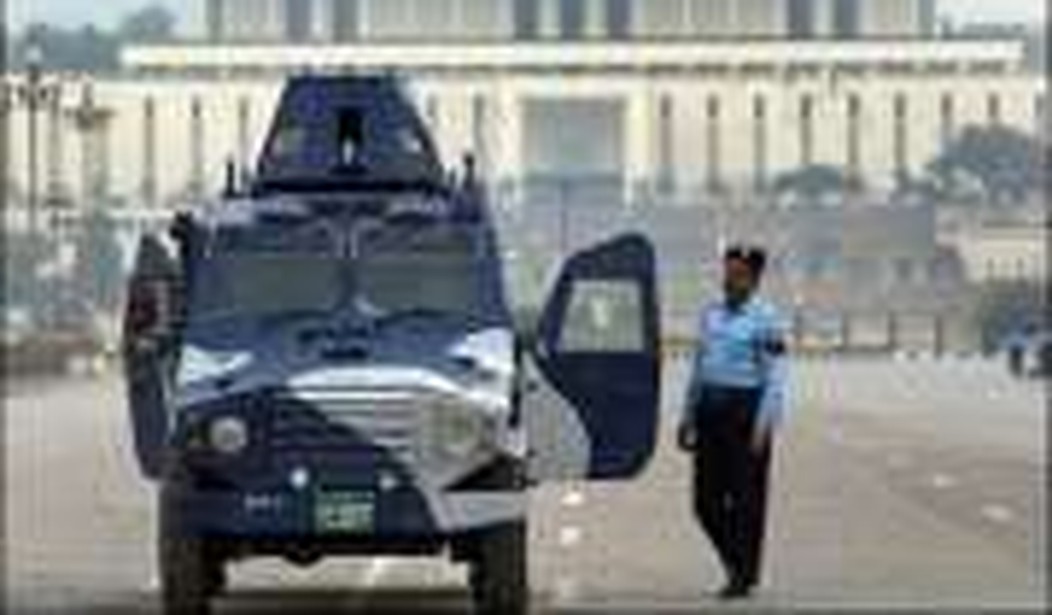There are no other topics in Pakistan. Everybody is talking about the emergency rule suddenly imposed Saturday by Chief of Army Staff General Pervez Musharraf.
Suddenly, but not surprisingly. It was expected. After all, how long can a military dictator talk about running a democratic government?
Until Saturday, the government vehemently denied that there would be any state of emergency in the country. Yet the media reported Friday night that Punjab police were heading towards Islamabad in large numbers. As it turned out, troops and paramilitary forces later joined in. Behind the scenes the ministers and government officials had extended their stay in government-allotted houses, which they were supposed to vacate by mid-November. Not a good sign.
It all became clear on Sunday at 00:45, when Musharraf addressed the country on national television and announced an “emergency.” This occurred after BBC, CNN, SKY, Fox and all the Pakistani private channels’ transmission (over 10 channels) had been blocked completely for several hours.
Political analysts predicted that Musharraf would have no need to impose a state of emergency in the country if he had any intention to respect and follow the law and constitution. And if it did take place, it would be an unmistakable indication that Musharraf’s government was a complete failure.
His justifications for imposing a state of emergency included terrorist attacks in different parts of the country and the interference of judiciary in the working of legislature, law-enforcement agencies and government organizations. The main culprit, he indicated indirectly, were judges led by the nation’s chief Supreme Court Justice, Iftikhar Muhammad Chauhdary, Chief Justice of Supreme Court. His crime: holding the government responsible for breaches of the law and constitution, notably Musharraf’s holding two Government positions – president and chief of staff.
Musharraf accused the judiciary of ordering the release of several persons who he claimed were terrorists. He listed all the recent terrorist attacks within the country including battle between Maulana Fazalullah’s army of militants and Frontiers Corps troops, and the bomb blasts in Rawalpindi and Sargodha.
In fact, the judiciary had simply asked the government to either press charges against persons held incommunicado for months or release them if there was no evidence against them.
Under his emergency law, General Musharraf has issued a Provisional Constitutional Order (PCO), putting the constitution in ‘abeyance’ but saying the country would be governed as closely as may be in accordance with the constitution although seven of its articles relating to fundamental rights, freedom of speech would remain suspended. It has also been stipulated that anyone arrested can be held in custody indefinitely.
The president asked that the United States and the European Union realize the gravity of Pakistan’s problems and avoid criticizing the government for imposing the state of emergency. “Please don’t demand your level of democracy as we are trying to learn. Give us time. We are trying to learn about civil liberties and other such issues, please bear with me and understand our problems,” he pleaded.
Pakistanis are certainly learning to appreciate civil liberties, as many have been absent.
The situation feels chaotic. People are living with a sense of turmoil wondering what has happened and what will happen next. There is an information vacuum. All non-government national and international television channels have remained off air since Saturday morning, and the government stations provide no information. Phone lines have been blocked for local, national and international calls.
Cellular networks were seized for a period of time but later opened.
Now, tongue in cheek, people are sending each other text messages, “congratulating” each other on the state of emergency finally being declared, as if they already knew it will happen.
The humor is often a cover for the fact that they are scared of talking about the situation more seriously.
Fear is in the air. Many of the anti-government organizations have not come out to protest, or give public statements against the ongoing situation in the country. They themselves are scared of the heavy military force threatened against them if they spoke against the General or the “emergency” Those who have paid the price – with swift crackdowns against the lawyers who dared to protest. Alerts are in place in the government to obstruct any additional protest plans chalked out by the legal fraternity and opposition parties. Police troops have been placed on different points near courts in Islamabad and Rawalpindi.
Pakistani citizens aren’t new at this – they have seen martial law before. It’s a familiar uncertainty. People are asking themselves questions, as there is no one else to answer them. What will Musharraf’s next move? What will be the future of Pakistan? Even if politicians were bothering to answer their questions, no one would believe them. They all have betrayed their supporters.
New judges have taken oath under Provisional Constitutional order (PCO) on Saturday and many are expected to follow suit on Sunday and Monday, although some have rejected the PCO and were sent home. As for the legislature, elections are likely be delayed and the existing parliament, which does not contain a single opposition member, will likely continue. How long? Nobody knows.









Join the conversation as a VIP Member